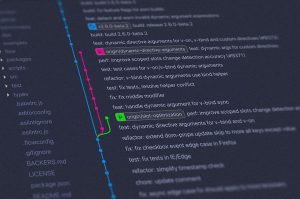Top Universities Offering Online PhD in Artificial Intelligence: Curriculum and Admissions
5 min read
As artificial intelligence (AI) continues to transform industries ranging from healthcare to finance, the demand for highly specialized academic professionals has never been higher. Earning a PhD in Artificial Intelligence is a powerful way to contribute to groundbreaking research, lead innovation, or teach the next generation of AI experts. Fortunately, several top-tier universities now offer online PhD programs in AI, allowing students to pursue advanced degrees while maintaining flexibility in their careers and geographical locations.
This article explores some of the top universities offering online PhD programs in Artificial Intelligence, how their curricula are structured, their unique characteristics, and what aspiring candidates need to know about the admissions process.
Why Choose an Online PhD in Artificial Intelligence?
Online PhD programs offer the same rigor, faculty expertise, and research opportunities as traditional on-campus programs. The major advantage is flexibility. Students can conduct research remotely, access digital labs and tools, collaborate with advisors through virtual platforms, and often complete coursework according to a personalized timeline.
Moreover, an online PhD allows working professionals to balance their academic pursuits with professional responsibilities. This mode of learning also encourages self-discipline, time management, and adaptability — essential traits for AI practitioners.
Top Universities Offering Online PhD in Artificial Intelligence
1. Stanford University
Known globally for its leadership in AI research, Stanford University offers an interdisciplinary PhD that can be tailored to include AI as a primary area of focus. While not fully online, Stanford offers hybrid components that allow distance learners to engage in research collaboration and virtual seminars.
- Program Focus: Deep learning, machine cognition, natural language processing, and computer vision.
- Admission Requirements: GRE scores, research proposal, recommendation letters, and strong academic background in computer science or mathematics.
- Curriculum Components: Core courses, research seminars, qualifying examinations, dissertation research.
Note that availability and flexibility may vary from year to year. Stanford’s online components are best suited for candidates who can attend campus at least periodically.
2. University of Oxford – Department of Computer Science
The University of Oxford offers a structured DPhil (Doctor of Philosophy) program in Computer Science with a specialization in Artificial Intelligence. While headquartered in the UK, the university allows flexible remote supervision under specific conditions.

- Specialties: Probabilistic AI, deep neural networks, AI ethics, and reinforcement learning.
- Admissions Process: Academic degrees with distinction, strong research proposal aligned with faculty interests, and proficiency in English.
- Online Adaptability: Research-based program with minimal coursework, which makes distance learning more feasible.
Oxford’s program is ideal for highly motivated scholars looking to contribute to foundational and theoretical AI research under world-renowned experts.
3. Colorado State University Global
CSU Global provides a uniquely designed, fully online Doctor of Computer Science (DCS) program with specializations in AI and machine learning. Aimed specifically at working professionals, it balances academic research and applied industry projects.
- Core Topics: AI systems design, ethical AI, neural architectures, and data science integration.
- Admission Criteria: Master’s degree in computer science or a related field, statement of purpose, and professional CV.
- Program Highlights: Online dissertation support, 24/7 platform accessibility, and weekly progress supervision.
This is a strong choice for students with industry experience who want to enhance their academic credentials and transition to high-level AI roles or academia.
4. Capitol Technology University
Offering a fully online PhD in Artificial Intelligence, Capitol Tech focuses on preparing students for technical leadership and research. It combines self-directed learning with structured mentorship, designed for experienced professionals.
- Key Subjects: Advanced algorithm design, AI security, knowledge representation, and intelligent systems.
- Entry Requirements: Professional experience, academic transcripts, outline of research interest, and references.
- Unique Features: Non-cohort model, one-on-one mentorship, and focus on publishing peer-reviewed research.
Capitol Tech’s program stands out for its affordability and strong emphasis on building publishable research portfolios.
5. Auburn University
Auburn’s Graduate School offers remote doctoral-level study in computer science with AI as a major research track. While not fully online, Auburn supports hybrid pathways and uses advanced digital infrastructure for virtual collaboration.
- Research Areas: Machine learning algorithms, AI in robotics, human-centered AI, and AI-driven cybersecurity.
- Admissions: Academic qualifications, résumé, three recommendation letters, and GRE scores (optional for some applicants).
- Online Components: Some research and seminars are accessible online, ideal for domestic students.

PhD Curriculum Overview
Though the structure may vary between institutions, an online PhD in Artificial Intelligence generally follows a comprehensive model focused on both theory and applied research. Common components include:
- Foundational Coursework: Subjects like advanced algorithms, mathematical methods, machine learning theory, and computational models of intelligence form the curriculum’s core.
- Research Seminars: Regular participation in digital symposia and interdisciplinary colloquia helps foster collaborative skillsets.
- Comprehensive Examinations: These evaluate mastery over specialized domains and readiness for independent research.
- Dissertation Research: A multi-year, original research project that contributes new knowledge to a niche area of AI.
- Publications and Conferences: Many programs encourage or require candidates to publish in peer-reviewed journals or present findings at academic conferences.
Admissions and Qualifications
Getting accepted into a top-tier online PhD program in AI is highly competitive. Most universities look for a blend of academic excellence, research potential, and alignment with faculty expertise. Typical requirements include:
- Academic Background: A Master’s degree (sometimes Bachelor’s with exceptional performance) in computer science, mathematics, engineering, or a related field.
- Research Proposal: A detailed outline of the candidate’s intended research direction, demonstrating awareness of current AI trends and unresolved problems.
- Letters of Recommendation: From professors or professionals who can attest to the applicant’s capabilities and future potential.
- Interview (Optional): Some universities conduct virtual interviews to better assess interest and compatibility.
Prospective students should also research faculty interests ahead of time. Aligning with a professor’s ongoing work significantly boosts the odds of acceptance and ensures a mutually beneficial research relationship.
Closing Thoughts
Pursuing an online PhD in Artificial Intelligence from a reputable university is a rigorous but rewarding journey. Whether your goal is advanced research, high-level industry leadership, or academic tenure, these programs offer the opportunity to make a lasting impact in one of the world’s fastest-growing fields.
As the field of AI evolves, so does its educational landscape. With innovative remote learning platforms and strong institutional commitment to research-led teaching, earning your PhD in AI has never been more accessible — or more important — than it is today.



